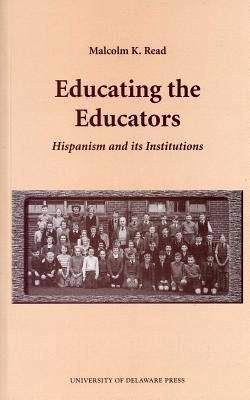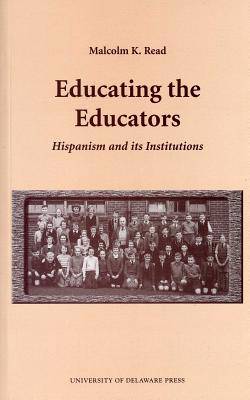
Door een staking bij bpost kan je online bestelling op dit moment iets langer onderweg zijn dan voorzien. Dringend iets nodig? Onze winkels ontvangen jou met open armen!
- Afhalen na 1 uur in een winkel met voorraad
- Gratis thuislevering in België vanaf € 30
- Ruim aanbod met 7 miljoen producten
Door een staking bij bpost kan je online bestelling op dit moment iets langer onderweg zijn dan voorzien. Dringend iets nodig? Onze winkels ontvangen jou met open armen!
- Afhalen na 1 uur in een winkel met voorraad
- Gratis thuislevering in België vanaf € 30
- Ruim aanbod met 7 miljoen producten
Zoeken
Omschrijving
Educating the Educators consists of two narratives. The first discusses the paradigmatic shifts that have taken place within British Hispanism in response to the historical development of capitalism, through its competitive, monopolistic, and global stages. At the ideological level, these shifts correspond to the transformation of the traditional intellectual into a state functionary and, ultimately, into a technician or 'expert', totally subsumed under capital and charged with the management of 'cultural studies'. Running alongside, and locked into, this first narrative is a second, which, in the form of three autobiographical essays, traces the author's long trek from his childhood origins in a working class family, through the institutions of education- and the experience of embourgeoisement- to his attempts, within the Australasian, Carribean, and North American academies, to retrieve the legacy of socialism. These two narratives are brought into symbolic relation through a theory of ideological production that explores the radicalizing effects of contradiction and conflict within the otherwise unconscious reproduction of social relations.
Specificaties
Betrokkenen
- Auteur(s):
- Uitgeverij:
Inhoud
- Aantal bladzijden:
- 172
- Taal:
- Engels
- Reeks:
Eigenschappen
- Productcode (EAN):
- 9780874138405
- Verschijningsdatum:
- 1/08/2003
- Uitvoering:
- Paperback
- Formaat:
- Trade paperback (VS)
- Afmetingen:
- 152 mm x 235 mm

Alleen bij Standaard Boekhandel
+ 127 punten op je klantenkaart van Standaard Boekhandel
Beoordelingen
We publiceren alleen reviews die voldoen aan de voorwaarden voor reviews. Bekijk onze voorwaarden voor reviews.











